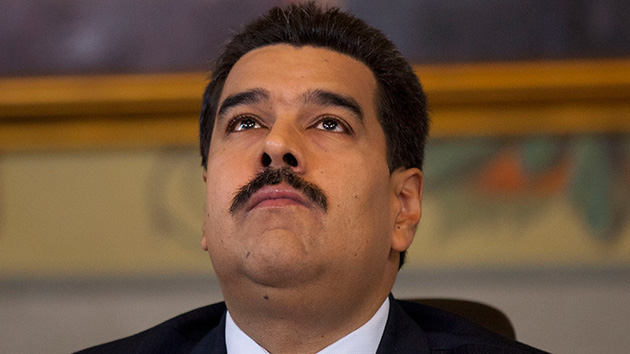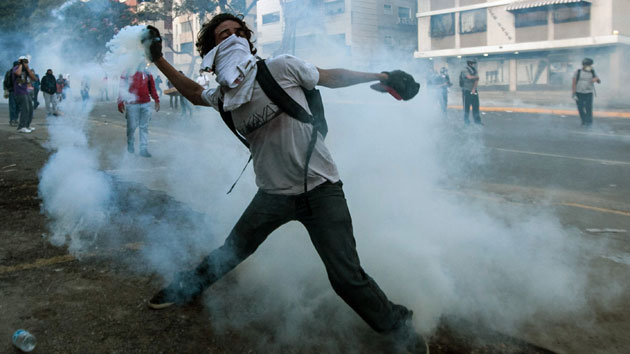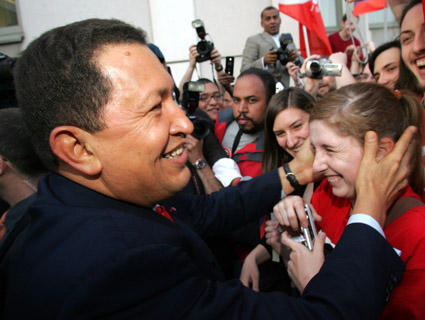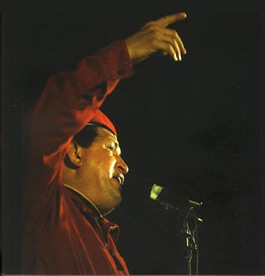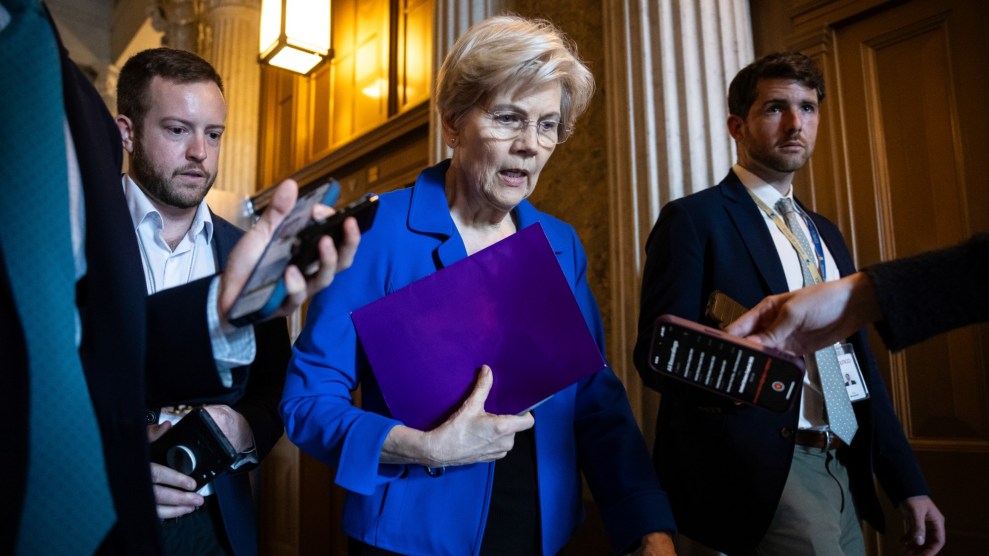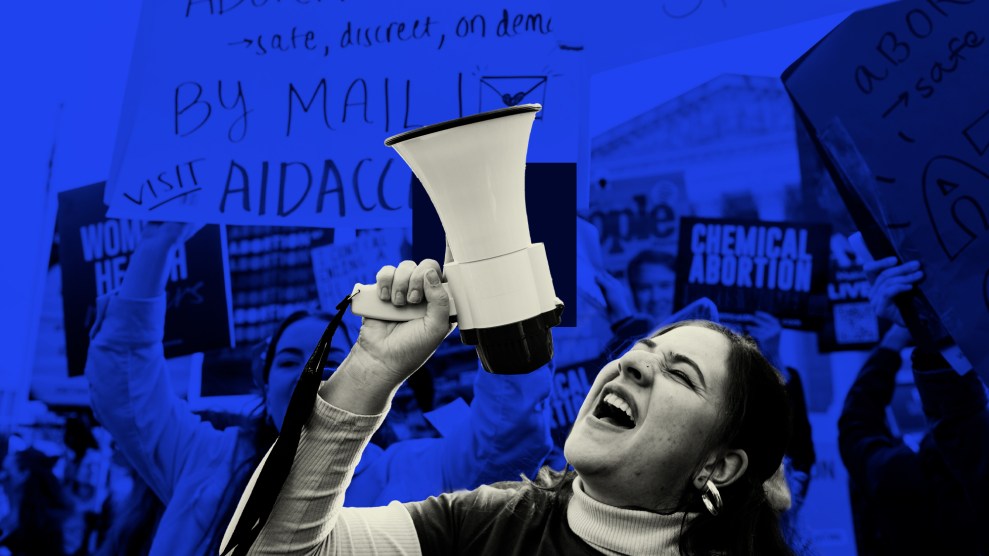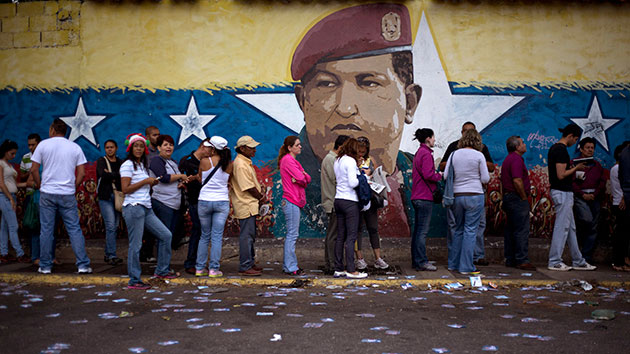
Outside a Caracas polling station on SundayAriana Cubillos/AP
For the first time since Hugo Chávez and his socialist revolution took power in the late 1990s, the Venezuelan opposition scored a huge electoral victory Sunday. Early this morning, the national election board announced that the opposition coalition, known as the Democratic Unity Roundtable (MUD in Spanish), took home at least 99 seats in the 167-member National Assembly, with 22 seats still up for grabs.
As I wrote Friday, the vote was largely seen as a referendum on President Nicolás Maduro and the larger leftist movement known as chavismo. According to the Associated Press, a chastened Maduro blamed the loss on “the economic war” waged by the private sector but also told his supporters “to recognize in peace these results and reevaluate many political aspects of the revolution.”
Those remaining 22 seats are crucial to what happens next. Should the opposition get to 112 seats—as MUD leader Henrique Capriles Radonski claimed it has—it would have a supermajority in the National Assembly. Last week I spoke with David Smilde, a Tulane University sociologist and a senior fellow at the Washington Office on Latin America (WOLA), who explained how the extent of an opposition victory would affect what it does moving forward:
- “If they just have a simple majority [84 seats], they’ll be able to control the congress and control the agenda, and there will be conflict with the government. They say they’re going to prioritize, for example, a bill for amnesty for the people they identify as political prisoners.”
- “If they get a three-fifths majority [101 seats], well then they can actually do no-confidence votes on the ministers and the vice president, and that would give them significantly more power. If you do two no-confidence votes, the person has to resign.”
- “If they get two-thirds, then they have even more power. They can call for a [presidential] recall referendum themselves, without a petition drive, which is the hard part.”
(For more, including how a supermajority could affect Venezuela’s Supreme Court, check out this roundup from WOLA’s Geoff Ramsey.)
As Smilde told NPR’s Morning Edition on Monday, “It’s very likely that they would push for a recall referendum in 2016. And if they were able to get that recall referendum or to go to a vote, it’s very likely that Maduro would be voted out as president.”
This post has been updated.

